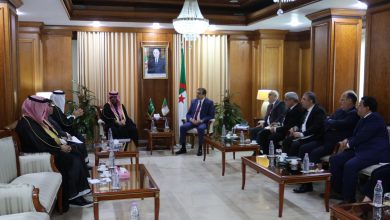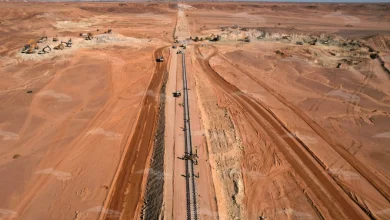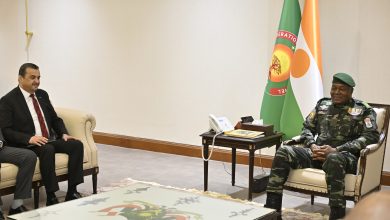Former U.S. President Donald Trump has once again ignited speculation surrounding potential renewed engagement with North Korea, suggesting a meeting with Supreme Leader Kim Jong-un could be on the horizon. Speaking to reporters aboard Air Force One en route to South Korea, Trump expressed optimism about future dealings with Pyongyang, stating, “At some point, we’re going to deal with North Korea. I think they want to, and I think I want to.” This declaration follows Trump’s earlier expression of a strong desire to meet with Kim during his visit to the Korean Peninsula.
Trump’s remarks have injected a renewed sense of anticipation into the already complex geopolitical landscape of the Korean Peninsula. The possibility of another summit raises questions about the potential for progress on denuclearization and the establishment of lasting peace. Relations between the United States and North Korea have been characterized by periods of intense negotiation and escalating tensions, marked by significant breakthroughs and frustrating setbacks.
During his first term, Trump pursued a highly unconventional approach to North Korea, engaging in direct diplomacy with Kim Jong-un in a series of unprecedented summits. The most notable of these meetings occurred on June 30, 2019, in the Demilitarized Zone (DMZ) separating North and South Korea. In a historic moment, Trump became the first sitting U.S. president to step foot on North Korean soil, crossing the Military Demarcation Line alongside Kim. This symbolic gesture was widely hailed as a potential turning point in relations between the two nations.
Describing the event as “a great day for the world,” Trump emphasized his pride in crossing the border. Kim Jong-un echoed this sentiment, expressing a desire to “leave the past behind and move towards the future.” He also voiced his hope that the meeting would yield “good news that no one expects,” highlighting the remarkable rapport between the two leaders. Kim even briefly crossed into South Korea with Trump, joined by the South Korean President at the time. The leaders then held a closed-door meeting, further fueling hopes for a diplomatic breakthrough.
However, despite the initial optimism generated by these high-profile summits, substantive progress on denuclearization proved elusive. The Hanoi summit in February 2019 ended abruptly without an agreement, highlighting the deep-seated differences between the two sides regarding the scope of denuclearization measures and the corresponding sanctions relief. Subsequent working-level talks failed to bridge the gap, and tensions gradually resurfaced as North Korea resumed its missile testing program.
For more information about Economie, check our dedicated section.
Trump’s recent comments suggest a willingness to revisit direct engagement with North Korea, potentially offering a fresh approach to resolving the long-standing nuclear issue. However, it remains to be seen whether a future meeting with Kim Jong-un would yield more concrete results than previous encounters. Several factors could influence the prospects for success, including the evolving geopolitical landscape, the internal dynamics within North Korea, and the potential for a more coordinated approach with allies in the region.
Analysts point out that North Korea’s nuclear ambitions are deeply intertwined with its perception of security threats and its desire for international recognition. Addressing these underlying concerns will be crucial to achieving lasting denuclearization. Furthermore, any future negotiations will need to address the issue of sanctions relief, which North Korea views as a critical incentive for dismantling its nuclear program.
The international community, including key players like South Korea, Japan, and China, will be closely watching the developments surrounding potential renewed engagement between the United States and North Korea. A coordinated and multilateral approach will be essential to ensuring that any future negotiations are conducted in a manner that promotes regional stability and advances the goal of denuclearization.
For Algeria, the situation on the Korean peninsula has always been of interest due to its implications for global peace and security. As a nation committed to non-proliferation and peaceful resolution of conflicts, Algeria supports diplomatic efforts aimed at achieving a denuclearized Korean Peninsula. DZWatch will continue to provide in-depth coverage and analysis of developments in this critical region, offering our readers a nuanced understanding of the complex challenges and opportunities that lie ahead. The Algerian government has long advocated for dialogue and peaceful negotiations as the only viable path towards resolving international disputes, a principle that applies equally to the situation on the Korean Peninsula. Algeria hopes to see a resumption of constructive dialogue between the United States and North Korea, leading to a peaceful and stable future for the region. The coming months will be crucial in determining whether Trump’s optimistic pronouncements will translate into concrete action and a renewed opportunity for progress on the Korean Peninsula. The world watches with cautious optimism, hoping for a breakthrough that can finally bring lasting peace to this volatile region.




